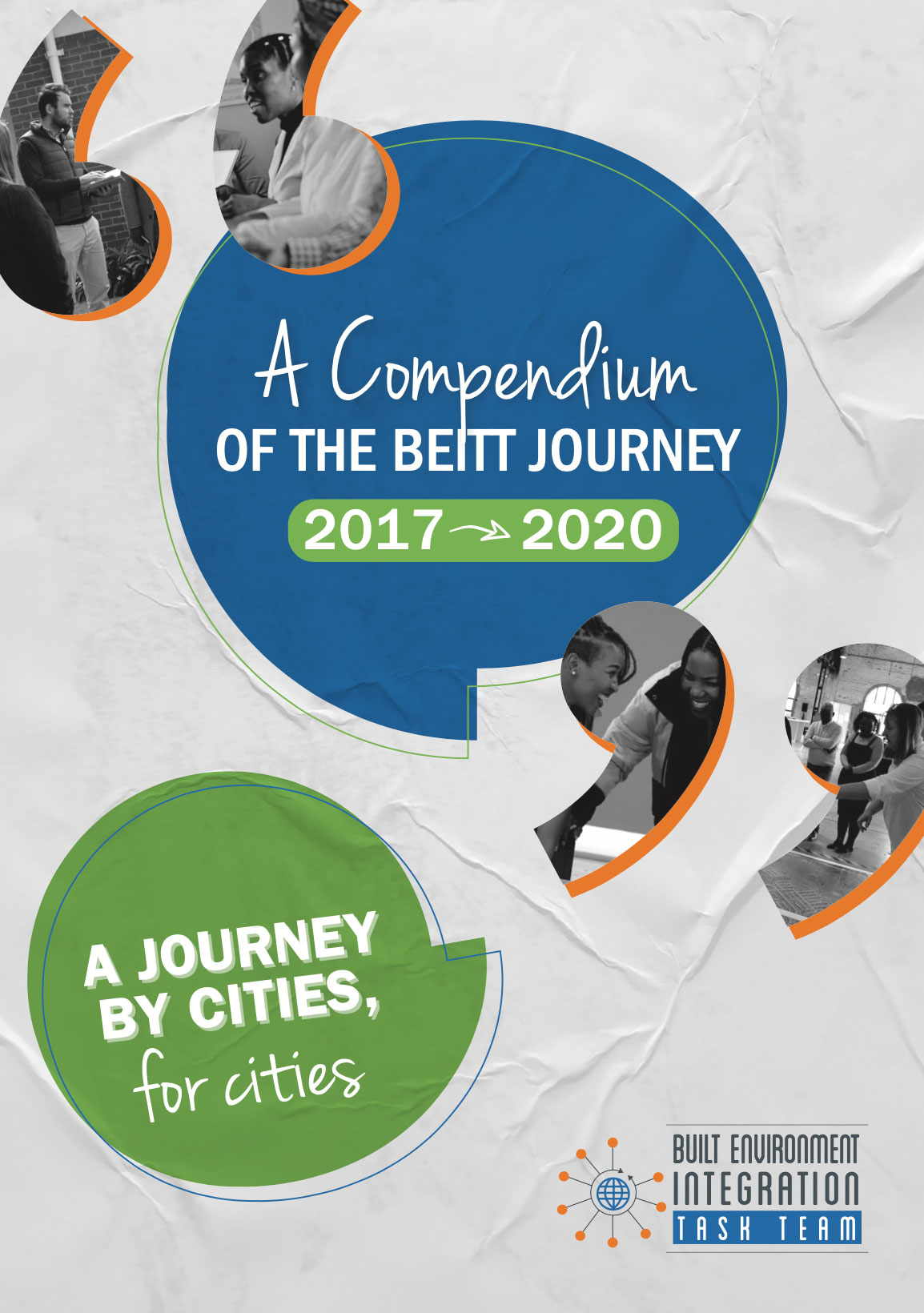A Compendium of the BEITT Journey 2017-2020
A journey by cities for cities

In 2017, the South African Cities Network (SACN) re-established the Built Environment Integration Task Team (BEITT), as a core pillar of its built environment programme 2017–2021. The BEITT aims to develop a deeper intelligence on the realities of municipal built environment practice (how things actually work), and to start to shift built environment practices. It does this by bringing together a community of city practitioners to engage in generative conversation, learn together, fail forward and reflect on how to change the institutions tasked with transforming South Africa’s cities. The city practitioners own the narrative, teach others about effecting change, and find ways of coming together to build fundamentally different cities.
The BEITT comprises built environment practitioners from various disciplines across the SACN’s participating cities, members of the SACN Secretariat, the Department of Cooperative Governance and Traditional Affairs (COGTA), the National Treasury’s City Support Programme (CSP), as well as the SACN Built Environment Integration Programme’s funding partners, the French Development Agency (AFD) and the Development Bank of Southern Africa (DBSA). The BEITT’s objectives are:
To formulate a collective city voice on issues of built environment integration and spatial transformation that is led by city practitioners and rooted in their lived experiences.
To deepen the collective understanding of practice through case studies, thereby creating a repository of city experiences and practitioner voices to shape the discourse on spatial transformation.
To continuously improve built environment practice in cities, by using a collective understanding of practice as shaped by the case studies and experiences.
The BEITT identifies areas that are impeding cities from driving spatial transformation, which are conceptualised as research projects – in this way, research is linked more directly to city practices. In addition, the BEITT submits responses into the intergovernmental system (e.g. IDP Guidelines) and engages with stakeholders from government, academia, civil society and the private sector. Since 2017, a total of 260 individuals have engaged with the BEITT. BEITT meeting venues are chosen to reflect an appropriate backdrop to the discussions and are intended to be historically meaningful environments. The Barefoot Facilitator, Rehana Moosajee, facilitates the sessions, using a methodology that is deliberately designed to create a safe space for reflection and generative conversation among participants. The facilitation style used by the BEITT has resulted in the team co-hosting a series of engagements, in particular during Covid-19. These include two ISOCARP1 international webinars, eThekwini’s World Planning Law Conference and the Women’s Day Webinar organised by COGTA.
Over the past year, the BEITT has moved to co-creating a meeting agenda with the host city, to provide a more immersive and practical learning experience and to engage with a broader group of built environment stakeholders. Since the outbreak of Covid-19 in March 2020, all engagements have been held virtually, which has allowed the BEITT to meet more frequently, going from quarterly to almost weekly meetings, and more practitioners to participate. Once a year, the BEITT goes on a learning retreat, which in 2019 took place at Earthrise Mountain Lodge in the Free State and in 2020 took the form of a Virtual Festival.
This Compendium provides an overview of the meetings and research work of the BEITT since 2017.



Comments